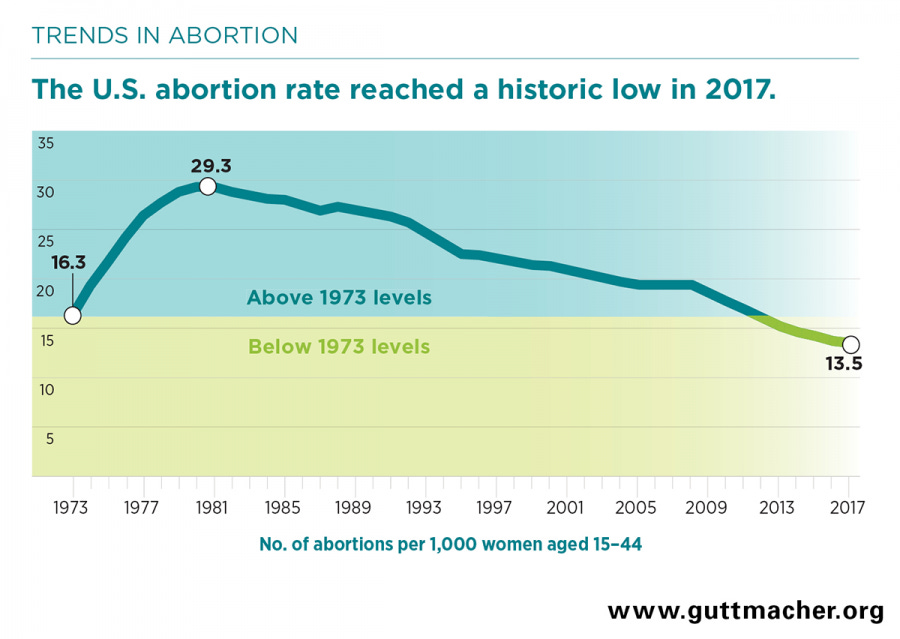The social conservatives won more than you think
On abortion, sexuality, and other issues, the 1980s and 1990s left their mark
When I was growing up, social conservatives were incredibly powerful. When the Eagle Forum came to my high school to urge us to use creationists textbooks, local citizens scrambled to fight it with the same fervor that conservative parents might now fight “critical race theory”. Almost everyone in my Texas town was Christian, but fervent, passionate Christianity was its own subculture-within-a-subculture. “See You at the Pole” was a big deal. Ralph Reed of the Christian Coalition made the cover of TIME as “The Right Hand of God”. And so on.
Fast forward a quarter century, and it feels like a different country. Christianity is in decline as irreligiosity grows, and church membership has fallen off a cliff:
Meanwhile, social conservatives were spectacularly defeated on one of their signature issues — opposition to the normalization of homosexuality. Gay marriage is the law of the land, and even a majority of Republicans is in favor. In 2014, Ross Douthat, perhaps the nation’s most prominent social conservative writer, wrote a column called “The Terms of Our Surrender”. No one really seemed to disagree with that assessment. Evangelical Christian organizations were a part of the Trump coalition, but only as a disempowered, dejected shadow of what they had once been.
But I don’t think social conservatives were defeated quite as decisively as they or others believe. They made significant progress on the policy front, and influenced American culture in deep and lasting ways — ways that even liberal Americans have since come to accept and even embrace.
Though the religious right lost big on same-sex marriage and prayer in schools, on their other big issue — abortion — they actually scored a qualified victory. Via the Guttmacher Institute, here’s data showing that the number of abortions per capita in the U.S. is now lower than it was before Roe v. Wade.
Part of this is because people are getting pregnant less (which we’ll talk about in a second). But much of it is because of a successful, sustained push for state-level restrictions on abortion providers. Conservatives never managed to overturn Roe, but it’s looking they sliced abortion rights to death with a thousand small cuts. Of course, to people who truly believe that abortion is mass murder, this is no true victory, but from the point of view of everyone else — especially women who might want abortions — it’s a pretty big deal. And a newly conservative Supreme Court is even now preparing to hear a challenge to abortion law that could allow even more restrictions.
That is social conservatives’ main victory in the policy arena, but in a number of other ways, American culture has quietly moved in some of the directions that conservatives wanted.
The most striking change regards sexuality. The modern social conservative movement arose in the 1970s partly as a backlash to the Sexual Revolution. But as sociologist Nicholas Wolfinger reports, extramarital sex has declined significantly since the turn of the century, driven by young people:
Not only are young Americans cheating less after marriage, but they’re having less sex as teenagers. The decline has been broad, though it’s especially pronounced among Black teenagers:
Even for those high schoolers who have had sex, The number of partners has gone down. And as you might expect, the drop in teen sex has led to a big drop in teen pregnancy. (Actually, American teens are engaging in less risky behavior across the board. Drug and alcohol use have declined precipitously among the youth.)
What about marriage and divorce? One impetus for the rise of social conservatism was the skyrocketing divorce rate of the 60s and 70s. But that rate has been falling for decades, and is now the lowest in half a century:
Again, the trend is being driven by younger Americans.
Part of the reason for falling divorce rates is that fewer Americans are getting married in the first place. That’s certainly not a trend that social conservatives like to see. This has been accompanied by a steep rise in out-of-wedlock births.
But there are glimmers of a reversal here. First of all, since the mid-1990s, the share of children living without one or both parents has declined substantially for Black Americans and moderately for Hispanic Americans, and might even start to be dropping for Whites.
Second, among educated people, marriage rates actually rose between the mid-90s and the mid-10s:
It’s not clear whether this newfound enthusiasm for marriage among the educated populace will persist, or whether it will filter down to the working class. But it definitely seems possible, especially if more Americans get degrees.
Why has American culture become more socially conservative when it comes to sex and marriage? Christianity and church attendance have declined, so it’s unlikely to be due to a strict adherence to the Bible. Instead, it seems possible that the efflorescence of social conservatism simply coincided with a general realization that the family disruptions of the Sexual Revolution had gone too far.
It’s possible that the age of the social conservatives contributed to this realization through their relentless activism, helping to define a consensus morality for the next generation. But what’s interesting is that liberals, rather than fighting back for a new Sexual Revolution, seem to have quietly embraced elements of conservative sexuality. Liberals have increasingly used the framework of sexual consent to discourage sexual relationships that involve an inherent power asymmetry — employers and workers, teachers and students, and so on. The #MeToo movement was primarily a revolt against sexual assault and harassment, but it also provoked a deep skepticism and unease about consensual sex in cases where both partners aren’t enthusiastic and completely emotionally comfortable. Some critics have even labeled #MeToo a “neo-Puritan revival”. Whether you agree with that characterization, I think we can all agree that the 1970s this is not.
I don’t have evidence that liberal reevaluation of the Sexual Revolution was actually prompted by social conservatives. The two movements might have happened in parallel, motivated by the same discomfiture with the trends of the 60s and 70s. I have a sense that social conservatives sent a message that liberals picked up and reinterpreted in terms of their own moral framework, but that might be an illusion.
But in any case, America hasn’t moved entirely away from the direction that the social conservatives wanted to push us. The movement made many missteps and suffered major defeats, but they were not entirely routed.










Other factors that seem relevant but weren't included here:
> the constant decrease in age at which career pressures start may be helping drive less risky behavior in teens
> teen culture moved online
> porn singularity
> online sex education
> Millennials saw the breakdown of forever marriage and learned not to repeat their parents mistakes with spouse choice
> decentralized and democratized social scenes (e.g., video games, fandoms) where you don't just default to drinking a bunch or doing coke
> better consent practices as a form of realized egalitarianism, not "neo-Puritanism". Would neo-Puritans have onlyfans?
> decentralization of culture against the individual atomization of hustle culture: why bother with a traditional marriage when chasing your career + side hustles takes you to new cities that you can't afford to start a family in anyway?
> commodification of public spaces and erosion of the dole
Hey Noah, one way you can very easily test your hypotheses is by comparing the US with other rich countries. My guess is many of these effects are true across the EU, and since there’s no Christian movement there, you could control for your driver.